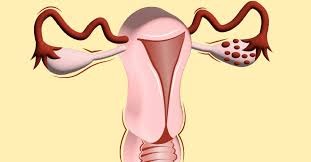Comprehending PCOS and PCOD: Handling Two Communal Health Issues for Women
Menstrual cycles and general health are impacted by two common disorders that affect many women globally: polycystic ovarian syndrome (PCOS) and polycystic ovarian disease (PCOD). Hormonal imbalances are the cause of many disorders, which may also be impacted by lifestyle decisions. We will examine PCOS and PCOD in depth in this post, along with its origins, symptoms, and treatment techniques to assist women in overcoming these obstacles.
Meaning of PCOD and PCOS?
Known by many names, Polycystic Ovarian Syndrome (PCOS) or Polycystic Ovarian Disease (PCOD) is a hormonal condition marked by irregular menstrual periods. Although there are parallels between the two illnesses, they also differ.
Polycystic Ovarian Disease, or PCOD:
PCOD is mostly a reproductive illness that disproportionately affects women. It causes tiny cysts to develop on the ovaries, which prevents them from functioning normally. These cysts have the potential to interfere with ovulation and the menstrual cycle. Hormonal abnormalities caused by PCOD also result in lower amounts of progesterone and estrogen and higher levels of androgen, the male hormone. One of the most frequent symptoms that women with PCOD face is irregular periods.
Polycystic Ovarian Syndrome, or PCOS:
Contrarily, PCOS is a more complicated hormonal condition that exhibits features comparable to PCOD, such as irregular menstruation and hormonal dysregulation. Apart from the aforementioned typical symptoms, women diagnosed with PCOS may also encounter several additional health complications. This disorder is more harmful than PCOD since it is known to raise the risk of heart disease.
PCOD and PCOS causes:
Research on the precise causes of PCOD and PCOS is still continuing. However, a number of variables, including genetics, insulin resistance, and lifestyle decisions, are considered to have a role in the development of these disorders.
Genetics: An increased chance of getting PCOD or PCOS might result from a family history of these illnesses.
Insulin Resistance: The hormone insulin is responsible for controlling blood sugar levels. Elevated insulin levels may result from insulin resistance, which is frequent in PCOD and PCOS patients. This may then cause the ovaries to generate more androgens, which might result in irregular menstrual cycles and hormonal imbalances.
Lifestyle Decisions: A healthy diet, regular exercise, and way of life in general are important for both controlling and avoiding chronic illnesses. Hormonal imbalances may be aggravated by a sedentary lifestyle and bad eating habits, worsening symptoms.
Signs of PCOS and PCOD include:
Typical signs of PCOS and PCOD include:
irregular time frames
hirsutism, or excessive hair growth
greasy skin and acne
Gaining weight
Mood changes
Inability to conceive
Hair thinning on the scalp
How to handle PCOD and PCOS:
Although PCOD and PCOS have no known treatment, women may control their symptoms and lower their chance of developing these disorders by doing the following:
Lifestyle Adjustments: In order to effectively manage PCOD and PCOS, a healthy lifestyle is essential. Hormonal imbalances may be regulated and general health can be enhanced by regular exercise, a balanced diet, and weight control.
Medication: To reduce excessive hair growth, menstrual cycle regulation, or insulin sensitivity, your healthcare professional may recommend medication.
Fertility treatments: You may want to think about ovulation induction or in vitro fertilization (IVF) if you’re having trouble becoming pregnant.
Stress management: Practicing yoga, mindfulness, and relaxation methods may help control the physical and emotional symptoms of PCOD and PCOS by reducing stress.
Frequent Check-ups: In order to keep an eye on your health, control your symptoms, and avoid problems, you must see your doctor on a regular basis.
Balanced Nutrition: Eating a diet full of fruits, vegetables, whole grains, lean meats, and other nutrients will help control hormones and blood sugar levels.
Weight management: Reducing excess weight will help you become more insulin sensitive and lessen the intensity of your symptoms if you are overweight.
Menstrual cycle disruption caused by prevalent women’s health illnesses PCOD and PCOS may result in a number of health problems. Women may live healthy, full lives even if there is no cure. Effective treatment measures, such as medication, lifestyle changes, and stress management, can assist. See a medical expert if you think you may have PCOD or PCOS for a precise diagnosis and a customized treatment plan that meets your unique requirements. Recall that you are not traveling alone and that you may get assistance and direction to help you through these challenges.







